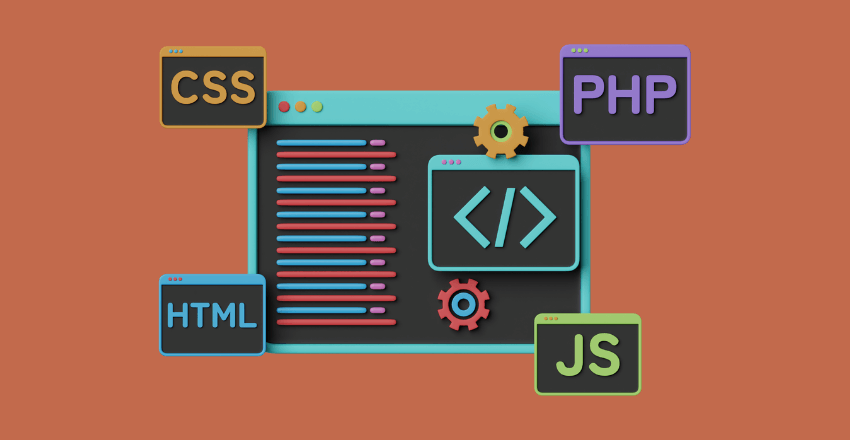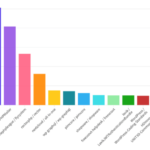 So, you’re puzzling over web development languages, huh? You’ve heard the name PHP popping up here and there and wondered, “Is PHP good for web development?” The short answer? Absolutely!
So, you’re puzzling over web development languages, huh? You’ve heard the name PHP popping up here and there and wondered, “Is PHP good for web development?” The short answer? Absolutely!
But why?
Let’s delve into this topic and find out!
PHP – A Historical Journey
PHP – it’s like the old tree in the digital forest. First popping up on our screens in 1994, it’s been a key player in the web development game. Websites like Facebook and WordPress were built on it, and boy, look at them now!
But it’s not all rainbows and butterflies. PHP has faced its fair share of skepticism. Some folks have concerns about its security and speed compared to other languages like Python and Java. But don’t worry, we’re going to dig deeper into this, so stick with us!
Unmasking PHP: Web Development’s Hidden Gem
When discussing whether PHP is good for web development, it’s essential to go beyond surface level knowledge. As a web development insider, I can attest to the significant advantages PHP brings to the table. Let’s delve into these specifics.
Cost-Effective and Time-Saving
PHP is open source, which means it’s free to use and modify. This fact alone makes it a compelling choice for startups and small businesses with tight budgets. Additionally, PHP’s vast library of documentation and pre-built modules can save developers hours of coding, allowing for quicker turnarounds on projects.
Flexible and Forgiving
PHP is known for its flexibility and forgiving nature. Unlike some languages that stop execution at the first sign of an error, PHP will continue running, which can be a lifesaver when you’re trying to debug your code.
Additionally, PHP allows you to change your code on the fly without needing to stop or restart your application.
Supportive Community
The PHP community is one of the biggest out there, and it’s incredibly supportive. There are countless forums, tutorials, and resources online that you can use to learn and improve your PHP skills.
Web Focused and Host Friendly
PHP is tailor-made for the web, unlike some other languages that require a bit of adaptation. Every web host supports PHP because of its popularity and long history in web development.
Hack: PHP Frameworks
One little-known fact is that there are many PHP frameworks, like Laravel and CodeIgniter, that can save you hours of coding time. These frameworks come with pre-built modules for common tasks like connecting to databases or managing user sessions, speeding up the development process.
Insider Tip: Utilize PHP 8’s JIT Compiler
If you’re concerned about PHP’s speed, you’ll be thrilled to hear about the Just-In-Time (JIT) compiler introduced in PHP 8. This compiler can dramatically improve the speed of your applications, especially when it comes to complex, computationally heavy tasks.
Case Study: Facebook
Facebook, the social media giant, is a shining example of PHP’s capabilities. It started as a PHP project, and while they have their own custom version of PHP (called Hack), the fact that such a global powerhouse was built on PHP is a testament to its capabilities.
Section sum up
The question “Is PHP good for web development?” becomes easier to answer the more you understand its unique capabilities. With its free access, web-centric design, and supportive community, PHP indeed stands out as a valuable tool for web development.
The key to maximizing PHP’s benefits lies in utilizing its wealth of resources, such as frameworks and JIT compiler.
And remember, even tech giants like Facebook have utilized PHP to create some of the world’s most popular web platforms.
So next time you’re working on a web development project, don’t forget to consider PHP!
PHP or Python: Which One to Pick?
Deciding between PHP and Python for web development can be like choosing between chocolate and vanilla ice cream. Both have their unique flavors.
Python is loved for its simple, easy-to-read style, but PHP is a strong contender when it comes to web development. Why? Because PHP was specifically designed for the web. It’s like it was born to create awesome websites. Its embedded coding in HTML makes it super versatile and easy to use.
Is PHP Alone Enough for Web Development?

Can PHP be the one-man band of web development? Well, it’s like making a cake. Sure, flour is essential, but you need other ingredients like sugar, eggs, and butter to make it delicious.
Similarly, PHP is a powerful part of web development, but it works best when paired with other technologies like HTML, CSS, JavaScript, and SQL. This combination will help you create a well-rounded, interactive, and dynamic website.
So, PHP alone might not be enough, but it’s definitely a critical player in the game!
PHP vs. Java: The Great Web Development Debate
“Is PHP better than Java for web development?” – a question older than time (or at least as old as PHP and Java!). Both have their pros and cons.
Java is highly versatile, it can run on any device, and it’s great for big, complex sites. But PHP? It’s simpler and faster for web development because it doesn’t need to be compiled like Java. Plus, PHP is easier to learn, making it an excellent choice for beginners in web development.
Addressing the Elephant in the Room: PHP Skepticism
There are some common concerns around PHP, mainly revolving around security and speed. But guess what? The security of a site depends more on how you use the language, rather than the language itself. A PHP software engineer who follows best practices can build a highly secure website!
As for speed, PHP has come a long way. The latest PHP 8 is super speedy and can compete with the fastest out there.
Expectations from a PHP Software Engineer
What should you expect from a PHP software engineer? In simple terms, they are like digital architects. They should know how to use PHP with other web technologies, follow security best practices, and write clean, efficient code. And the best ones are always learning and adapting as PHP evolves.
FAQs on PHP and its use in web development, along with code samples.

1. Q: Can PHP handle multi-threading for web applications?
A: PHP is primarily a single-threaded language. However, it’s possible to achieve multi-threading with PHP through extensions like pthreads. Here’s a simple example:
class MyThread extends Thread { public function run() { echo "Hello from a thread!\n"; } } $thread = new MyThread(); $thread->start();2. Q: Is PHP capable of handling WebSockets for real-time web applications?
A: Yes, PHP can work with WebSockets using libraries like Ratchet. Here’s a basic Ratchet WebSocket server example:
use Ratchet\MessageComponentInterface; use Ratchet\ConnectionInterface; class MyChat implements MessageComponentInterface { public function onOpen(ConnectionInterface $conn) { } public function onMessage(ConnectionInterface $from, $msg) { } public function onClose(ConnectionInterface $conn) { } public function onError(ConnectionInterface $conn, \Exception $e) { } }3. Q: Can PHP run asynchronous code like JavaScript’s async/await?
A: While PHP is not inherently asynchronous, there are ways to simulate this behavior with tools like ReactPHP.
$loop = \React\EventLoop\Factory::create();
$timer = $loop->addPeriodicTimer(1, function() {
echo "Tick\n";
});
$loop->run();
4. Q: How to make PHP code more maintainable and efficient?
A: One way to enhance PHP code maintainability is to follow PHP-FIG’s PSR standards. Here’s an example of using PSR-4 for autoloading classes:
// project/src/MyApp/Controllers/HomeController.php namespace MyApp\Controllers; class HomeController { public function index() { // ... } }5. Q: Is there a way to optimize PHP performance?
A: Sure! OPCache is a caching engine built into PHP that can significantly improve PHP performance. It’s usually enabled by default from PHP 5.5 onwards.
6. Q: How to use PHP’s inbuilt server for local development?
A: You can start PHP’s built-in server with this command:
php -S localhost:80007. Q: Can PHP interact with NoSQL databases like MongoDB?
A: Yes, PHP has extensions like MongoDB to interact with NoSQL databases. Here’s a basic usage example:
$manager = new MongoDB\Driver\Manager("mongodb://localhost:27017"); $query = new MongoDB\Driver\Query([]); $cursor = $manager->executeQuery('test.myCollection', $query);8. Q: How can PHP handle file uploads?
A: PHP provides built-in superglobals ($_FILES) and functions (move_uploaded_file) for handling file uploads.
if ($_SERVER['REQUEST_METHOD'] === 'POST') { move_uploaded_file($_FILES['myFile']['tmp_name'], '/path/to/save/' . $_FILES['myFile']['name']); }9. Q: Can PHP be used for creating RESTful APIs?
A: Absolutely. PHP can be used to build RESTful APIs, often aided by frameworks like Laravel or Slim.
// Using Slim Framework use Psr\Http\Message\ResponseInterface as Response; use Psr\Http\Message\ServerRequestInterface as Request; $app = new \Slim\App; $app->get('/api/users', function (Request $request, Response $response, array $args) { // Fetch users from a database... $response->getBody()->write(json_encode($users)); return $response; }); $app->run();10. Q: How can I create and manage PHP packages?
A: Composer is the dependency manager for PHP that you can use to create and manage PHP packages.
```bash composer init ```11. Q: Can PHP connect with mail servers for sending emails?
A: Yes, PHP can send emails using the mail() function, or more sophisticated libraries like PHPMailer.
```php use PHPMailer\PHPMailer\PHPMailer; $mail = new PHPMailer(); $mail->setFrom('me@example.com'); $mail->addAddress('you@example.com'); $mail->Subject = 'PHPMailer Rocks'; $mail->Body = 'Hello, World!'; $mail->send(); ```12. Q: Can PHP interact with APIs?
A: Yes, PHP can interact with APIs using its in-built file_get_contents or the more feature-rich cURL functions. For instance, the following snippet retrieves a JSON response from a REST API endpoint using cURL:
```php $ch = curl_init(); curl_setopt($ch, CURLOPT_URL, "https://api.example.com/data"); curl_setopt($ch, CURLOPT_RETURNTRANSFER, 1); $output = curl_exec($ch); curl_close($ch); $responseData = json_decode($output, true); ```13. Q: Can PHP generate and manipulate images?
A: Yes, PHP can generate and manipulate images using its GD and ImageMagick extensions. Here’s a simple example of creating a 200×200 px image with a red background using GD:
```php $im = imagecreatetruecolor(200, 200); $red = imagecolorallocate($im, 255, 0, 0); imagefilledrectangle($im, 0, 0, 199, 199, $red); header('Content-Type: image/png'); imagepng($im); imagedestroy($im); ```14. Q: Can PHP handle file I/O operations?
A: Yes, PHP has a robust set of built-in functions to handle file I/O operations. Here’s an example of reading and writing to a file:
```php $file = 'example.txt'; // Write text to the file file_put_contents($file, 'Hello, world!'); // Now read the file's contents $contents = file_get_contents($file); echo $contents; // Outputs: Hello, world! ```15. Q: Can PHP handle XML processing?
A: Absolutely, PHP has robust support for XML processing using extensions like SimpleXML, XML Parser, and DOM. Here’s a basic example of parsing XML with SimpleXML:
```php $xmlString = " <books> <book> <title>Harry Potter</title> <author>J.K. Rowling</author> </book> </books>"; $xml = simplexml_load_string($xmlString); echo $xml->book[0]->title; // Outputs: Harry Potter ```These examples should give you a deeper understanding of PHP’s capabilities for web development and its potential for flexibility and robustness.
With the right approach and knowledge, PHP can be a powerful tool in your web development toolkit.
In a Nutshell
So, is PHP the best choice for web development? It depends on the project, but it’s certainly a powerful and flexible option. PHP has stood the test of time, evolving and improving along the way.
Whether you choose PHP, Python, or Java, remember that a great website isn’t just about the language it’s written in. It’s about how you use it.
So, the next time you’re asked, “Is PHP good for web development?” you’ll know the answer.
It’s a big YES!
Over to You!
What are your thoughts on PHP for web development? We’d love to hear your experiences and opinions.
Ashley is an esteemed technical author specializing in scientific computer science. With a distinguished background as a developer and team manager at Deloit and Cognizant Group, they have showcased exceptional leadership skills and technical expertise in delivering successful projects.
As a technical author, Ashley remains committed to staying at the forefront of emerging technologies and driving innovation in scientific computer science. Their expertise in PHP web development, coupled with their experience as a developer and team manager, positions them as a valuable resource for professionals seeking guidance and best practices. With each publication, Ashley strives to empower readers, inspire creativity, and propel the field of scientific computer science forward.



![How to use Cursor AI to write PHP Code[Example]](https://hirephpdeveloper.dev/wp-content/uploads/2025/03/How-to-use-Cursor-AI-to-write-PHP-Code-1-150x150.png)



